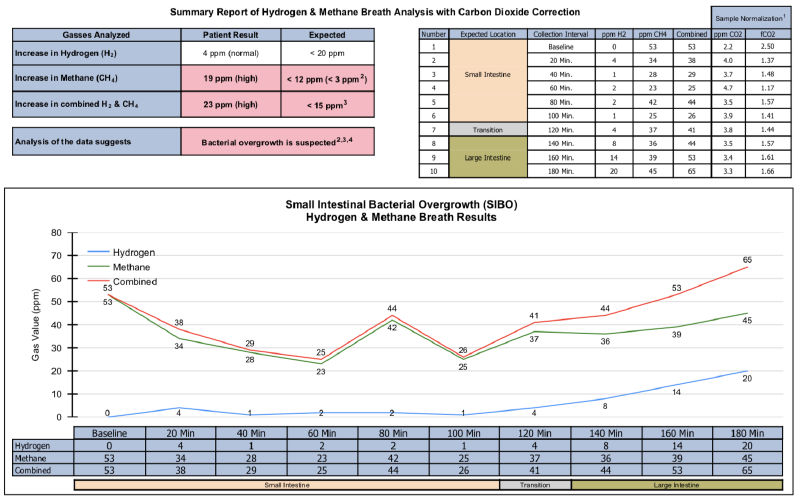
21 . 12 . 2018
Case Report - Autoimmunity
The case of 33-year-old female with gastrointestinal, musculoskeletal and dermatological complaints who showed a 90% improvement in symptoms after treatment, is reported.
Looking to obtain solutions for the symptoms she had been experiencing for at least two years, M.G. decided to try a Funcional Medicine approach. Her chief complaints were the following:
- diffuse and migratory joint pain;
- constipation (up to one week without bowel movements);
- high body temperature sensation;
- feeling of general dehydration;
- rosacea (a form of acne).
In 2016, M.G. had been diagnosed with Hashimoto’s thyroiditis, an autoimmune disease that affects the thyroid and leads to a gradual and progressive destruction of this gland, which can result in hypothyroidism. At the time, anti-thyroglobulin antibodies were 834 IU / ml (negative anti-TPO antibodies). She was prescribed levothyroxine, even though her thyroid function wasn’t altered and felt some improvement in symptoms.
Also in 2016, a more extensive autoimmune screening panel was obtained, and the presence of antinuclear antibodies (ANA) at a titre of 1: 160 was observed (remaining tested autoantibodies were negative). However, M.G. didn’t fulfill the diagnostic criteria for any autoimmune disease and it was decided to just monitor clinically.
Feeling that her health was slowly deteriorating, M.G. sought a different approach in order to avoid a future disease, even more because there is a history of lupus in her family.
In this case, there was clear suggestion of an imbalance of the gastrointestinal flora and the presence of autoimmunity. At the first visit, an elimination diet (restriction of cereals, dairy products, eggs, nuts and alcohol) was recommended for a period of one month in order to identify eventual food intolerances. Specific testing for SIBO (small intestinal bacterial overgrowth) and overall colon health was also recommended. When there is autoimmunity, it is important to rule out sources of inflammation in the gastrointestinal tract.

Fig. 1 – Breath test result suggesting the presence of SIBO.

Fig. 2 – Comprehensive digestive stool analysis showing evidence of dysbiosis.
With her nutritionist’s help, M.G. followed the elimination diet and was able to identify the foods that were contributing to her symptoms. Only with this simple intervention, M.G. reported a 70% improvement in symptoms. At this stage, treatment for SIBO (methane predominat) and intestinal dysbiosis was started, using botanical antimicrobials.
Follow up was done 6 months after the initial appointment, and then M.G. reported a 90% symptom improvement. The joint pain, fatigue, skin problems and constipation disappeared almost completely. The symptoms only return when M.G. eats certain foods (gluten is particularly problematic for this patient), and at these times she knows what to do to return to her equilibrium. Regarding her lab tests, it should be noted that the anti-thyroglobulin antibodies were negative in the last evaluation. This is an indicator that the autoimmune process is under control at this time.

Fig. 3 – Progression of anti-thyroglobulin antibodies (pre and post treatment).
The reported case is a good example of what Functional Medicine can offer in the early stages of disease, when there is no concrete and treatable diagnosis yet, but patients feel that something isn’t right. Factors such as food intolerances and intestinal dysbiosis can have a significant impact on health and trigger autoimmunity. Thus, it is beneficial to investigate and treat these, and possibly other, imbalances in order to stop or slow down the profession of autoimmunity.